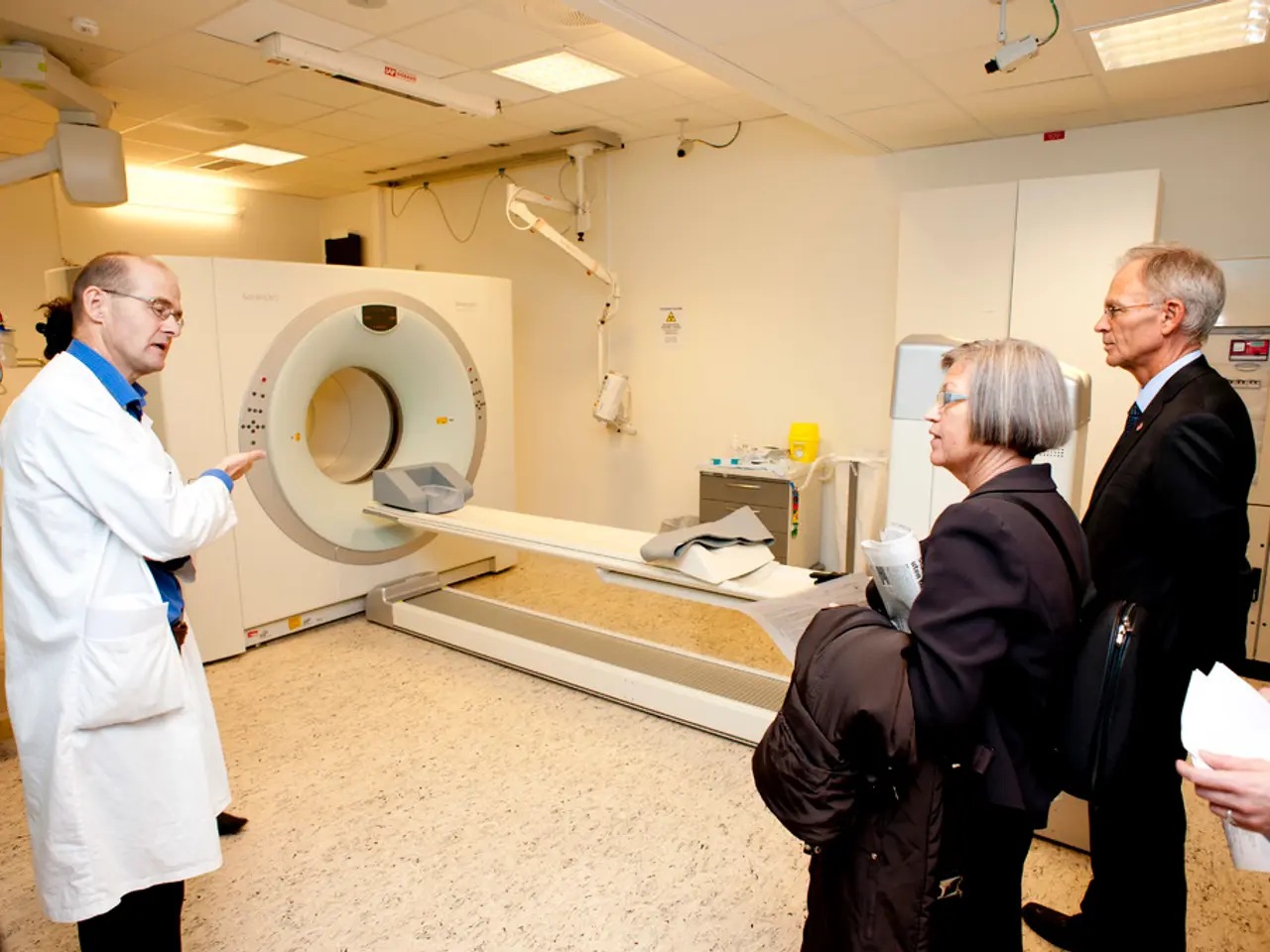NHS Long-Term Strategy Commits to Prompt Implementation and Expansion of Emerging Medical Technologies
The National Health Service (NHS) is set to undergo significant changes in its approach to MedTech procurement, regulation, and funding, as outlined in the NHS 10-Year Plan for England. The plan, aimed at modernizing healthcare, will bring about a series of transformative measures to accelerate the adoption of cutting-edge technologies, improve patient outcomes, and boost the life sciences sector.
One of the key changes is the introduction of 'innovator passports', a digital system that will streamline the bureaucratic process, enabling cutting-edge MedTech and treatments to be rolled out more swiftly across the NHS. This system will allow technology already robustly assessed by one NHS organization to be easily adopted by others, thereby speeding innovation uptake and benefiting both patients and the life sciences sector.
The NHS also recognizes the need to shift its procurement focus from short-term savings and outdated solutions to investing in technologies that improve productivity and patient outcomes. The plan will implement national value-based procurement guidelines aimed at prioritizing long-term value over immediate cost-cutting. Procurement will be more centralized through a new internal marketplace for distributing devices and digital tools consistently across the country.
To further expedite the rollout of innovative technologies, the NHS's technology appraisal process will be expanded to cover devices, diagnostics, and digital products, including AI. This marks the first national funding and scaling system designed specifically to support high-impact health technologies beyond pharmaceuticals, facilitating quicker and broader adoption across the NHS.
The plan also places a strong emphasis on supporting digital and AI technologies in healthcare. The focus is on five key technology areas—data, AI, genomics, wearables, and robotics—as core to transforming the NHS. Funding includes up to £600 million jointly invested in a new Health Data Research Service to back these innovations.
In addition, the plan promotes digital transformation through tools like the NHS App and a single patient record. This shift aims to make healthcare access as easy as online banking, allowing patients to manage appointments and access records digitally while ensuring inclusivity with alternative access methods.
To further improve the regulatory landscape, the Medicines and Healthcare products Regulatory Agency (MHRA) will adopt a more pro-innovation approach to regulation while maintaining safety. The MHRA will also undertake a MedTech Regulatory Review, with a new regulatory framework for medical devices, including AI, to be published in 2026.
The Patient Safety Commissioner function will be transferred to the MHRA, and MHRA and NICE will launch a joint process by April 2026 to accelerate medicine access, reduce administrative burdens, and improve decision-making. NICE will also identify outdated technologies and therapies to be removed from the NHS, freeing up resources for investment in more effective ones.
In summary, the NHS 10-Year Plan overhauls MedTech procurement by adopting value-based, centralized purchasing, accelerates regulation and rollout through innovator passports, expands NICE appraisal to include MedTech, and boosts funding for data-driven and AI-enabled health technologies, all while focusing on digital integration to improve patient access and care outcomes. These changes are expected to revolutionize the NHS, improving patient experience and outcomes, and potentially achieving substantial savings for the NHS.
For comments or questions regarding this article, please contact [email protected].
References: [1]
- The plan aims to advance the life sciences sector by implementing a digital system called 'innovator passports', streamlining the adoption of medical devices and treatments across the NHS.
- The NHS will prioritize long-term value over immediate cost-cutting in its procurement strategy, investing in technologies that improve productivity and health outcomes, as part of national value-based procurement guidelines.
- To support high-impact health technologies beyond pharmaceuticals, the NHS will expand its technology appraisal process to include devices, diagnostics, and digital products like AI, marking the first national funding and scaling system for these innovations.




